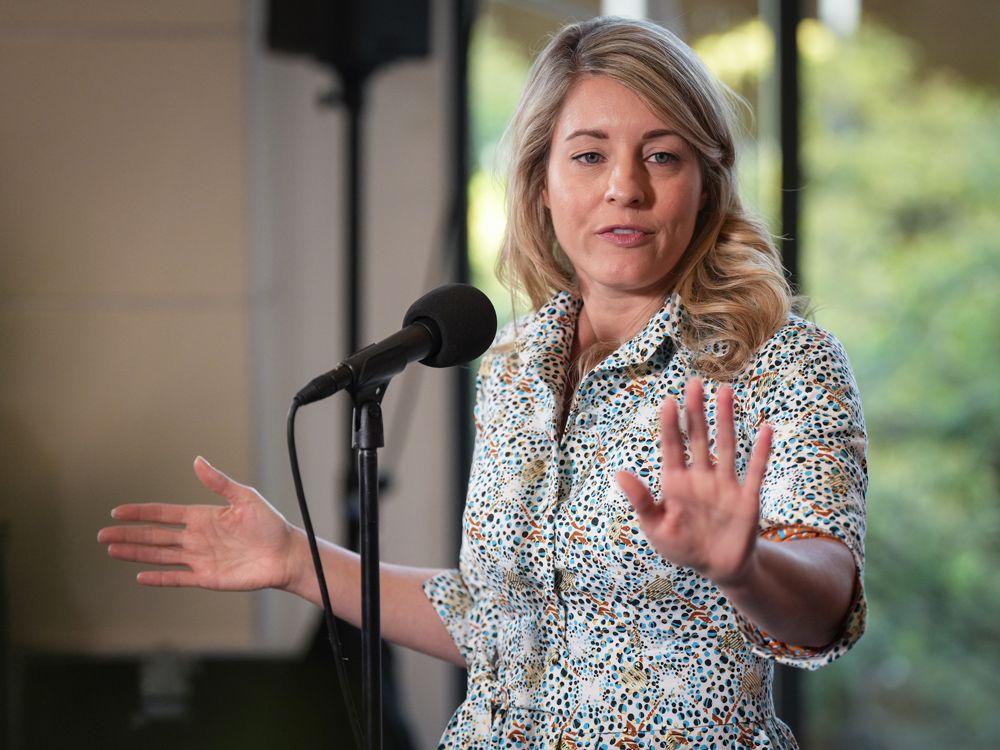
Canada Halts U.S. Ammunition Sale to Israel Amid Gaza Conflict
In a significant diplomatic move, Canadian Foreign Affairs Minister Mélanie Joly has announced that Canada will block a controversial arms sale intended for Israel. This decision, revealed during a Liberal Party caucus retreat in Nanaimo, B.C., marks a decisive stance against the ongoing conflict in Gaza. Joly made it clear that Canada will not permit the export of Quebec-made ammunition to the Israeli Defence Forces through the United States, highlighting Canada's commitment to curbing arms shipments amid the crisis.
The backdrop to this decision involves the suspension of approximately 30 arms export permits to Israel, a measure implemented by the Canadian government earlier this year. This suspension came in response to heightened criticism of Israel's actions in the Gaza conflict, which erupted in October 2023 when Hamas militants launched a deadly attack on Israel, resulting in significant casualties on both sides. The conflict has since escalated, with severe humanitarian impacts, particularly in Gaza, where a large number of civilian casualties have been reported.
Also Read:- Landmark Renters’ Rights Bill Promises Major Reforms but Faces Challenges
- Bitcoin Approaches $58K Amidst Political Debate and Crypto Market Dynamics
Joly's announcement comes in the wake of the U.S. Defense Security Cooperation Agency's approval of a substantial arms deal, which included high-explosive mortar rounds manufactured by General Dynamics Ordnance and Tactical Systems, a Quebec-based division of the U.S. defense contractor. Canada’s move to block this deal underscores its position on limiting the flow of military equipment to the region. Joly was emphatic about the government’s policy: "We will not have any form of arms, or parts of arms, be sent to Gaza. Period."
This policy shift has sparked diverse reactions. The Centre for Israel and Jewish Affairs (CIJA) has criticized the decision, arguing that it undermines Israel's right to self-defense amidst ongoing attacks from Hamas and other militant groups. They accused the Canadian government of abandoning its traditional support for Israel, suggesting that such moves might be politically motivated as Canada gears up for potential leadership changes within the Liberal Party.
Conversely, arms-control advocates and organizations like Project Ploughshares have lauded Canada’s decision. They argue that suspending arms exports is a critical step to ensure that Canadian weaponry does not contribute to civilian suffering in conflict zones. They also point out that explosive weapons in densely populated areas lead to disproportionately high civilian casualties.
The controversy also extends to broader implications for Canada’s arms export policies. Critics have noted that while halting the Quebec-made ammunition sale is a step in the right direction, Canada must ensure that all military components, including those related to the F-35 fighter jets sold to Israel, are similarly restricted to fully align with international humanitarian law and Canada’s ethical commitments.
As Canada navigates its role in the Gaza conflict, this move represents a complex intersection of international diplomacy, humanitarian concerns, and domestic political considerations. The government's decision reflects a growing sensitivity to the humanitarian impacts of arms sales and highlights Canada’s evolving stance on its role in global conflicts.
Read More:

0 Comments